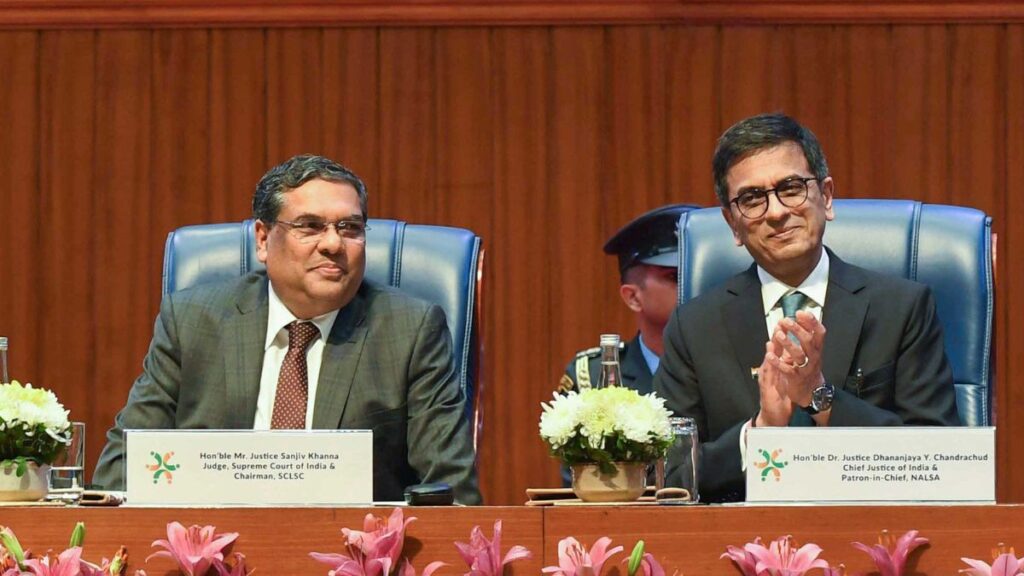Justice Sanjiv Khanna has been nominated as the next Chief Justice of India, following a formal letter from the current Chief Justice DY Chandrachud to the Union law ministry. This nomination aligns with established protocols whereby the outgoing Chief Justice recommends the second-most senior judge for the position. Justice Khanna’s appointment, pending approval from the Union government, marks a significant moment in the judicial landscape of India.
Taking office as Chief Justice on November 9, 2022, DY Chandrachud has made substantial contributions to the Indian judiciary during his tenure. His leadership has emphasized judicial independence, access to justice, and the efficient functioning of the court system. As his term approaches its conclusion on November 10, the judiciary prepares for a transition that is crucial not only for the Supreme Court but also for the broader legal framework of the country.
Justice Sanjiv Khanna, born on July 24, 1960, in New Delhi, has a distinguished judicial career. After completing his undergraduate degree in law from the University of Delhi, he began his career in the legal field, quickly establishing a reputation for his expertise in constitutional law and commercial matters. He joined the Supreme Court in 2019 after serving as the Chief Justice of the Delhi High Court.
Khanna’s ascension to the Chief Justice role comes at a time when the Supreme Court faces various challenges, including a significant backlog of cases and pressing issues regarding judicial accountability and transparency. His experience in high-profile cases and keen understanding of the law are expected to play a vital role in addressing these challenges.
The recommendation of Justice Khanna as Chief Justice is not only about judicial experience; it also reflects a commitment to upholding the principles of justice and fairness that underpin the Indian legal system. His judicial philosophy is characterized by a strong adherence to the rule of law and a commitment to protecting constitutional rights. As a judge, he has often emphasized the importance of public interest in legal proceedings, a perspective that resonates well with the evolving needs of Indian society.
Justice Khanna’s nomination comes amid ongoing discussions about the need for reform in the judiciary. With growing concerns about the pace of justice delivery, there is an expectation that his leadership will bring renewed focus on efficiency and accountability within the judicial system. Legal experts have noted that Khanna’s previous judgments reflect a pragmatic approach, balancing the demands of justice with the realities of the legal framework.
Khanna’s experience in dealing with constitutional and administrative law cases is seen as an asset, especially at a time when questions regarding civil liberties and the rights of marginalized groups are at the forefront of national discourse. His understanding of complex legal issues will be pivotal in navigating the Supreme Court through these critical discussions, ensuring that the judiciary remains a guardian of the Constitution.
In the context of broader judicial appointments, the nomination of Justice Khanna raises questions about the future leadership dynamics within the Supreme Court. Traditionally, the seniority principle has guided judicial appointments in India, and this transition underscores the significance of maintaining this practice. Observers suggest that this adherence to seniority not only preserves institutional integrity but also promotes stability within the judiciary.
As Justice DY Chandrachud prepares to hand over the reins, his tenure will be remembered for several landmark judgments that have had a lasting impact on the legal landscape. He has championed the cause of gender equality, social justice, and environmental protection, setting a precedent for future judicial leadership. His proactive stance in addressing pressing societal issues has enhanced public confidence in the judiciary’s role as an instrument of justice.
Looking ahead, the focus will shift to the Union government’s response to Justice Khanna’s nomination. The approval process is a critical step, as it involves a thorough examination of the nominee’s credentials and a confirmation of their suitability for the role. The outcome of this process will shape the future trajectory of the Supreme Court and its role in the Indian legal system.



 No Central Funds So Far To Wayanad Victims Despite Two Court Directives
No Central Funds So Far To Wayanad Victims Despite Two Court Directives 